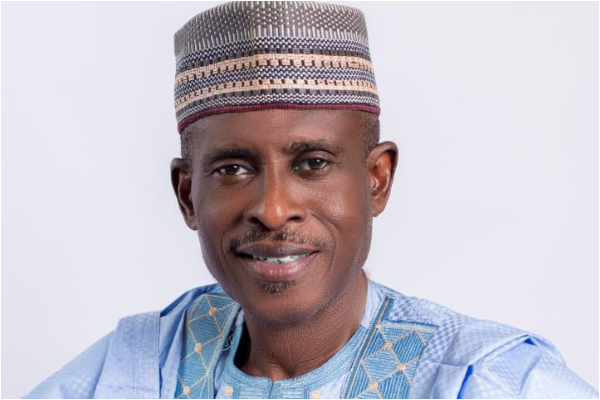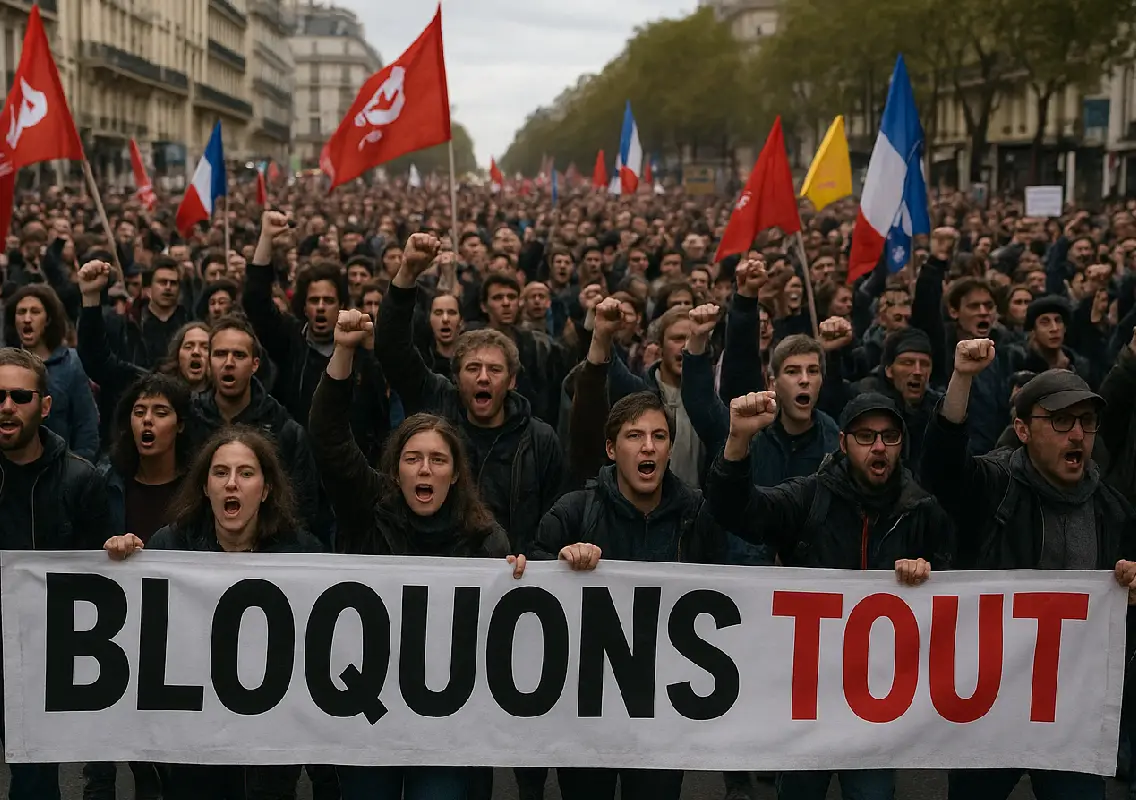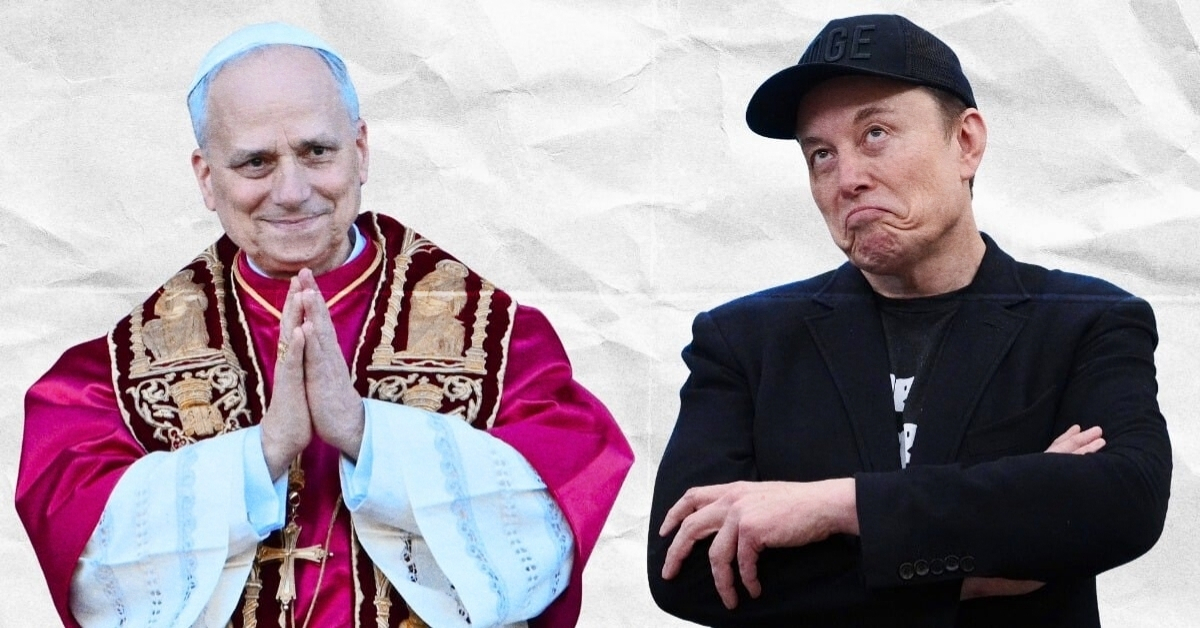By Ghana News
Copyright ghanamma

In the spirit of ancestral stewardship and civic duty, this article is offered as a ritual of reckoning—a call to conscience, a challenge to power, and a plea for legacy leadership. Let it be read not as opposition, but as obligation.
In the annals of Ghana’s environmental governance, few crises have exposed the fragility of political will as starkly as the galamsey menace. Once framed by opposition voices as a moral emergency and a threat to national survival, illegal mining has now metastasized into a full-blown ecological, public health, and governance disaster.
Yet, the Mahama administration—despite its campaign-era fervor—has chosen caution over courage, legality over leadership, and optics over operational urgency.
At his September 10, 2025 media encounter, President John Dramani Mahama dismissed calls for a state of emergency to combat illegal mining, arguing that “existing legal tools have not yet been exhausted” and that emergency powers would be a “last resort”.
This posture, while diplomatically phrased, represents a profound retreat from the moral urgency and political clarity the NDC once championed in opposition.
From Pledges to Paralysis: A Scathing Requiem for Ghana’s Bleeding Rivers
Ghana’s rivers run dark with mercury—silent witnesses to a betrayal cloaked in polite politics. What was once a clarion call for emergency action has become a lullaby of legalese, lulling the nation to slumber as its lifeblood seeps into poisoned sludge.
This is not mere policy drift; it is a moral eclipse that demands we tear down the veil of complacency and stare unflinchingly at the carnage we tolerate.
Campaign Flames Extinguished by Governing Fog
In the crucible of opposition, NDC voices thundered: galamsey was a ravenous beast, devouring communities and corroding our future. Candidate Mahama vowed at the University of Energy and Natural Resources to “declare war” on illegal miners, to unleash drones and AI as our modern-day watchdogs, and to ban small-scale operations until every last pit was filled.
Those were not platitudes—they were battle cries meant to ignite collective resolve.
Yet today, nine months into his presidency, that fire has been smothered by bureaucratic caution. At the September 10, 2025 media encounter, President Mahama wrapped his retreat in courtroom reasoning: “Existing legal tools have not yet been exhausted.
Emergency powers will be a last resort.” In those words, lies the crux of our betrayal—an admission that optics trump urgency, process trumps passion, and legal inertia trumps leadership.
From Moral Emergency to Political Coma
Can we stomach another river turned chocolate-brown, another farmer’s well rendered toxic, another child’s future stunted by heavy metals? Every day we delay, the earth sighs in agony, and the amplest promises made in opposition echo hollowly across desolate banks.
This is no time for somber speeches and incremental tinkering. It is time to rend the ledger of excuses, to seize emergency powers, and to declare with unbreakable resolve that galamsey is a crime against our soil, our souls, and our shared destiny.
The Case for Emergency: Health, Water, and Food Security
The consequences of galamsey are no longer speculative:
Water bodies poisoned: Over 60% of Ghana’s rivers are contaminated with mercury and cyanide.
Health systems strained: Rising cases of gallbladder disease, kidney failure, and birth defects in mining zones.
Food insecurity: Cocoa farms and arable lands have been razed, threatening livelihoods and national exports.
Public trust eroded: Citizens watch as operatives close to power shield perpetrators, while enforcement remains selective.
Turbidity Levels of Polluted Rivers in Ghana
Turbidity (NTU)
Location/Context
5,000–12,000
Major water bodies sourcing from forest reserves
Up to 14,000
Rivers in the Southwestern Basin impacted by galamsey
Feb 16, 2023
“Significant improvement” (exact NTU not reported)
Inspection tour by Deputy Lands Minister George Mireku Duker noting clearer water compared to prior years.
Sept 18, 2025
Described as “thick and milky brown” (numeric data unavailable)
High-level NAIMOS inspection highlighted severe sediment loading from ongoing galamsey.
Additional useful context:
Ghana Standard Authority sets a maximum of 5 NTU for safe drinking water and 500 NTU as the upper threshold for water treatment.
High turbidity impairs light penetration, disrupts aquatic ecosystems, and can shield pathogens, posing risks to human health and biodiversity.
Cleanup costs for heavily polluted rivers have been estimated at over $300 million, encompassing desilting, heavy-metal removal, and long-term monitoring.
Effective remediation strategies combine community-driven “water guards,” satellite-based monitoring, and legal enforcement under the Environmental
Protection Act (2025, Act 1124).
Turbidity (NTU)
Location/Context
5,000–12,000
Major water bodies sourcing from forest reserves
Up to 14,000
Rivers in the Southwestern Basin impacted by galamsey
Feb 16, 2023
“Significant improvement” (exact NTU not reported)
Inspection tour by Deputy Lands Minister George Mireku Duker noting clearer water compared to prior years.
Sept 18, 2025
Described as “thick and milky brown” (numeric data unavailable)
High-level NAIMOS inspection highlighted severe sediment loading from ongoing galamsey.
Additional useful context:
Ghana Standard Authority sets a maximum of 5 NTU for safe drinking water and 500 NTU as the upper threshold for water treatment.
High turbidity impairs light penetration, disrupts aquatic ecosystems, and can shield pathogens, posing risks to human health and biodiversity.
Cleanup costs for heavily polluted rivers have been estimated at over $300 million, encompassing desilting, heavy-metal removal, and long-term monitoring.
Effective remediation strategies combine community-driven “water guards,” satellite-based monitoring, and legal enforcement under the Environmental Protection Act (2025, Act 1124).
Water bodies poisoned: Over 60% of Ghana’s rivers are contaminated with mercury and cyanide.
Health systems strained: Rising cases of gallbladder disease, kidney failure, and birth defects in mining zones.
Food insecurity: Cocoa farms and arable lands have been razed, threatening livelihoods and national exports.
Public trust eroded: Citizens watch as operatives close to power shield perpetrators, while enforcement remains selective.
The Kwanyako Headworks in the Central Region has shut down due to siltation from
These are not isolated incidents—they are systemic failures. And they meet every constitutional threshold for declaring a state of emergency under Article 31: threats to life, essential resources, and public safety. The data demands emergency. If this is not the threshold for emergency, what is?
Lest We Forget: Key NDC Leadership Quotes on Galamsey While in Opposition
Sept 07, 2017
Samuel Ofosu-Ampofo (NDC Chairman)
“Returning seized excavators to poor miners shows the government’s hypocrisy; law-breakers are rewarded while communities pay the price.”
Official statement from the NDC National Secretariat, countering an NPP directive to release confiscated mining equipment.
Nov 08, 2018
Parliamentary Minority Caucus
“We demand the immediate halt of illegal mining or we will invoke parliamentary oversight to hold the executive accountable.”
Motion tabled on the floor of Parliament, urging the government to strengthen enforcement in forest reserves.
July 27, 2019
Johnson Asiedu Nketia (General Sec.)
“NPP’s war on galamsey is empty rhetoric; while they seize excavators, colluding officials quietly sell licenses under the table.”
Address to delegates at the NDC National Delegates Conference, accusing the ruling party of double-standards.
May 15, 2019
Okudzeto Ablakwa (MP, North Tongu)
“Galamsey is state-sponsored environmental terrorism; unchecked criminal mining threatens our water bodies and public health.”
Remarks during an inter-party oversight hearing by the Subsidiary Legislation Committee in Parliament.
June 22, 2020
Sam George (MP, Ningo-Prampram)
“Using the military against our own citizens will not end illegal mining; instead, let’s invest in alternative livelihoods and formalise small-scale mining.”
Rally address in Ningo-Prampram, appealing to young people caught up in artisanal mining to seek regulated opportunities.
March 03, 2023
Hamza Suhuyini (Nat’l Comm. Team)
“Because of the NDC’s commitment, we were able to reclaim some reserves and retrieve rivers that were in the hands of illegal miners. That is a visible achievement.”
Interview on GBC’s Current Agenda, defending the NDC’s past environmental interventions and contrasting with NPP policy.
Quotes by Fiifi Quartey (NDC Gen. Sec) on Galamsey (2019–2020)
Speaker/Position
June 12, 2019
Hon. Fiifi Quartey; Senior NDC Spokesperson
“Ghana cannot continue to lose her rivers and forests to the greed of a few. When we assume office, we will declare an immediate, uncompromising ban on all unauthorized small-scale mining. Let there be zero tolerance for any form of galamsey.”
Interview on Citi FM’s The Big Issue
August 22, 2019
Hon. Fiifi Quartey; Senior NDC Spokesperson
“We have seen task forces run to arrest community youth, while the real masterminds—the financiers and transporters—walk free. Our policy as the next government will be to hunt down and prosecute the kingpins behind galamsey, not punish the vulnerable.”
Speech at University of Ghana, Legon
October 3, 2019
Hon. Fiifi Quartey; Senior NDC Spokesperson
“You cannot fight galamsey with press statements alone. We will deploy drones, geo-fencing and real-time satellite imagery to track illegal excavators—and give our enforcement teams the teeth to act. This will end the days of illegal operators escaping.”
Press conference at NDC National HQ
February 8, 2020
Hon. Fiifi Quartey; Senior NDC Spokesperson
“Our rivers—our sacred waters—have been turned black by mercury, poisoned by greed. Under NDC leadership, we will mobilize a nationwide cleanup, fully fund the Environmental Protection Agency, and work with local chiefs to restore every waterbody.”
Campaign rally in Tarkwa
March 15, 2020
Hon. Fiifi Quartey; Senior NDC Spokesperson
“We have heard every excuse under the sun—lack of equipment, funding, manpower. When the next NDC administration takes over, there will be no more excuses, no more delays. We will immediately launch a special task force, with clear timelines.”
Interview on Peace FM’s Kokrokoo
The NDC, in opposition, was vocal and uncompromising. The leadership quotes continue below:
Speaker / Source
NDC Campaign Trail
“We will support small-scale miners and stop the harassment.”
During campaign events, NDC leaders promised to protect livelihoods in mining communities, criticizing the NPP’s military-style crackdowns.
NDC Manifesto (2024 Draft)
“We will regulate and formalize small-scale mining, not criminalize it.”
The party’s manifesto outlined plans to legalize and support artisanal mining while enforcing environmental safeguards.
Dr. Anthony Sorkpah (NDC Insight)
“We should not fool ourselves, nor allow ourselves to be fooled.”
A critique of NPP’s galamsey policies, accusing them of hypocrisy and mismanagement. He claimed the NPP held 320 galamsey licenses.
NDC Communications Team
“Declare a state of emergency in galamsey zones.”
In opposition, NDC leaders proposed bold reforms including emergency declarations and bans in forest reserves.
NDC Chairman (Unnamed)
“Release arrested miners and return seized excavators.”
Allegedly promised during campaign engagements with mining communities, according to critics from the NPP
Read and listen to candidate Mahama himself on Galamsey. Quotes on the Campaign Trail
Event/Location
October 2024
UENR Policy Forum (Sunyani)
“It seems the President is unaware of my position on illegal mining, despite my numerous public statements on the issue.”
Responding to calls by President Akufo-Addo to clarify Mahama’s stance at the University of Energy & Natural Resources.
October 2024
UENR Policy Forum (Sunyani)
“Come January 7, 2025, after Ghanaians have voted for me, I will take full responsibility and address the issue.”
Pledging that the incoming NDC administration would tackle galamsey once in office.
November 2024
Rally, Ningo-Prampram Constituency
“You are currently the president of Ghana, and it is your responsibility to deal with galamsey now.”
Challenging the sitting president to act on illegal mining during his Greater Accra campaign tour.
November 2024
Rally, Ningo-Prampram Constituency
“After January 7, 2025, when Ghanaians have elected me, I will take responsibility and sort out illegal mining.”
Outlining his “first 120 days” social contract, promising swift action against illegal mining upon inauguration.
November 2024
Rally, Kpone-Katamanso Constituency
“It looks like he doesn’t live in this country because I have commented on galamsey extensively.”
Critiquing claims that Mahama had never addressed galamsey—pointing to extensive briefings and public engagements.
More insights
The NDC’s 2020 manifesto echoed many of these pledges, committing to AI-tracking of excavators and a 90-day action plan against galamsey. After the 2020 election, the NDC regularly referenced these opposition promises to hold the ruling party to account on environmental degradation.
Beyond these, Mahama’s manifesto further pledged to repeal L.I. 2462, ban new mining in forest reserves, and roll out “Tree for Life” and “Blue Water” initiatives to restore degraded lands and water bodies.
Felix Kwakye Ofosu, now Government Communications Minister, once demanded “empirical proof” that galamsey had worsened under Mahama. That proof now lies in poisoned rivers and displaced farmers.
Hamza Suhuyini, a National Communications Team member, claimed the NDC had “achieved more” in the galamsey fight than the NPP. Yet internal reports show NDC operatives shielding illegal miners and diverting public equipment.
The Minority Caucus has condemned the government’s response as “hypocritical and deceptive,” citing rampant galamsey in Mahama’s own hometown, Bole Bamboi.
Even the Forestry Commission Chair, Prof. Oteng-Ababio, admitted that the NDC’s past calls for emergency powers were made “without full appreciation” of the crisis. This is a stunning admission of political opportunism
Leadership on Trial
President Mahama’s refusal to declare a state of emergency is not a matter of legal prudence—it is a failure of political will. The Ghana Catholic Bishops Conference has called galamsey a “cancer in our national soul” and warned that delay is betrayal. Civil society groups, including A Rocha Ghana and the Ghana Coalition Against Galamsey, have accused the government of “downplaying the severity” of what they now call “environmental terrorism”.
This is not a moment for cautious governance. It is a moment for ceremonial reckoning, for invoking the full weight of constitutional authority and cultural symbolism to restore discipline, unity, and hope.
Implications for Development
Short electoral cycles skew incentives toward quick wins rather than systemic change. Investors in sustainable mining hesitate amid conflicting mandates, while environmental degradation accelerates unchecked. The very ecosystems and rural livelihoods that politicians claim to protect remain imperiled, undermining Ghana’s long-term growth prospects.
Communities in mining regions endure alternating waves of hope and disenchantment. Pledges to safeguard livelihoods give way to emergency powers or military-style interventions. In the absence of transparent data on water quality, forest cover and license allocations, citizens grow cynical. When political rhetoric drowns out evidence, voters withdraw from meaningful participation because of erosion of public trust.
Recent Calls for Emergency Declarations
While Ghana hasn’t declared a nationwide emergency in recent years, there have been intense public demands for one—especially around the galamsey (illegal mining) crisis:
Religious leaders like the Catholic Bishops Conference have called galamsey a “cancer in our national soul” and urged President Mahama to declare a state of emergency.
Civic groups argue that the environmental destruction and lawlessness justify extraordinary measures.
President Mahama has so far resisted, preferring conventional enforcement tools, but has not ruled out an emergency declaration if the crisis worsens. For a ceremonial strategist like me, the historical arc of emergency declarations offers both caution and opportunity:
They can be tools of unity and discipline—if framed with transparency and cultural resonance.
They demand ritualized accountability—pledge ceremonies, leadership walls, and symbolic acts to reassure the public.
They offer a chance to define legacy moments—where crisis becomes a crucible for moral clarity and operational excellence.
Yes, Ghana has declared states of emergency in its history—but they’ve been rare, targeted, and often politically charged as follows:
Ghana’s Rare and Targeted States of Emergency
15 March–30 June 1961
Northern Region
Suppress escalating Konkomba–Nanumba tribal clashes
Historical records
24 February–30 April 1966
Transitional control and public order after the overthrow of President Nkrumah
Historical records
15 May–14 June 1979
Restore stability during the Armed Forces Revolutionary Council (AFRC) transition
Historical records
These declarations have been rare, geographically focused, and time-limited. They were triggered by acute threats to public safety or governance continuity rather than by long-running policy challenges.
The most notable example was during the Dagbon crisis in 2002, when violent clashes erupted following the assassination of the Ya-Na (King of Dagbon). The government declared a state of emergency specifically in the Northern Region, not nationwide, to restore order and prevent further escalation.
A Blueprint for Emergency Action
President Mahama must confront the contradiction between his campaign rhetoric and his governing posture. Declaring a state of emergency is not autocracy—it is accountability. It is the ritual by which a nation reclaims its soul.
Let the government move toward evidence-based governance:
Establish a non-partisan galamsey oversight commission combining technical experts, civil society and traditional authorities
Co-create a formalisation pathway that links clear licenses to rigorous environmental safeguards
Base public communications on verified data sets, including soil assays, river-health indices and license audits
Publish time-bound action plans with defined milestones to hold leaders accountable beyond election cycles
Deploy military engineers and rapid-reaction units to seal off hotspots.
Establish a Joint Operations War Room fed by real-time intelligence and mapped areas.
Host regional pledge ceremonies and update Leadership Walls to reinforce transparency.
Mobilize medical screening teams, alternative-livelihood programs, and riverine patrols.
Host pledge ceremonies for regional commanders and civic leaders
These steps blend constitutional authority with cultural ritual, forging unity and operational rigor. These are not just operational tools—they are instruments of legacy.
Political Will or Political Expediency?
The Mahama government’s reluctance is not rooted in legal ambiguity—it is a crisis of conviction. The same administration that once demanded emergency powers now argues that such measures are economically disruptive. But what is the cost of inaction? What is the price of poisoned rivers, displaced farmers, and dying forests?
Even more troubling is the perception of complicity. Reports suggest that NDC operatives are involved in shielding galamsey syndicates, diverting public equipment, and manipulating local systems. The Goldbod initiative, meant to sanitize gold trade, has been branded a “monumental scam” by critics.
A Call to Legacy Leadership
President Mahama must decide: will he be remembered as the leader who spoke truth to power in opposition, or the one who shrank from truth in office? Declaring a state of emergency is not autocracy—it is accountability. It is a ritual of national reckoning, a ceremonial invocation of unity and discipline.
Constitutional Framework
Under Article 31 of the 1992 Constitution, the President can declare a state of emergency when:
The life of the nation is threatened by war, natural disaster, or internal unrest.
Essential resources like water, food, or public safety are endangered.
However, this power is not absolute:
It requires Parliamentary approval within 72 hours.
The Council of State must be consulted.
Rights like detention must follow strict safeguards (e.g., written justification within 24 hours).
Conclusion: Crisis or Crucible?
Ghana stands at a crossroads. We can accept a softened, incremental fight that fails to match galamsey’s industrial scale—or rise to the moment with bold, emergency measures.
Let this declaration be our ritual of national reckoning. Let it signal that political will triumphs over political posturing. And let President Mahama seize this opportunity to transform campaign fervor into governing legacy. The soul of our rivers, our forests, and our future depends on it.
Galamsey transcends party lines. It is a shared national mandate. Water security, food resilience and intergenerational equity all hinge on durable institutions anchored in science and transparency. The era when environmental policy serves merely as campaign rhetoric must end. It is time for political actors across the aisle to forge a consensus that secures Ghana’s democratic and ecological future
Critical Question to President John Dramani Mahama and the NDC
Mr. President, Ghana has historically reserved states of emergency for sharply defined crises—the 1961 Northern tribal clashes, the post-coup transitions of 1966 and 1979, and the 2002 Dagbon violence—yet you now dismiss calls for extraordinary powers even as galamsey ravages our rivers, farmlands, and public health.
How do you justify that this full-blown ecological and governance catastrophe does not warrant the same urgent, targeted emergency response our nation has deployed in its gravest moments?
At your September 10 press conference, your insistence that “existing legal tools have not yet been exhausted” fell far short of the expectations of Ghanaians demanding decisive action.
Will you now seize this moment to redeem your administration’s promise—declare a state of emergency, deploy extraordinary measures, and prove that leadership, not legalistic caution, defines your presidency?
Dr. (Alhaji) Abubakari Sidick Ahmed
Civic Strategist, and Broadcaster- Radio Univers, Legon
Former Commissioner NMC



